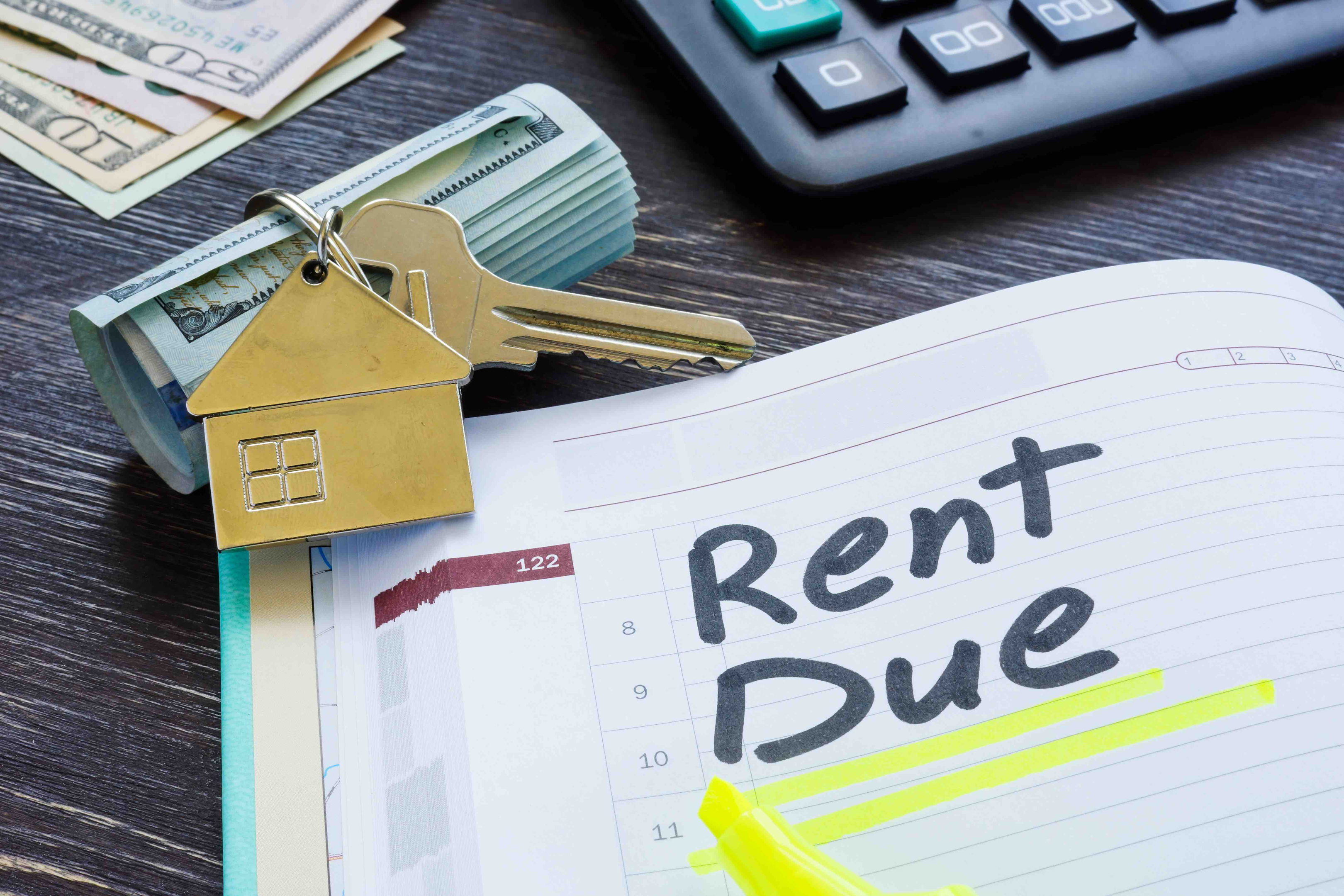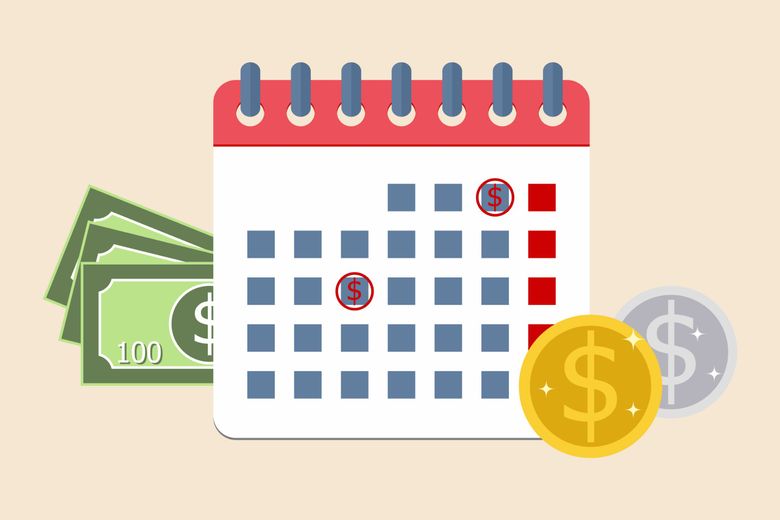
Renting a property, whether you’re a landlord or tenant, involves navigating a complex web of responsibilities and regulations. One key area that can impact the landlord-tenant relationship is the management of rent late fees. Understanding the ins and outs of rent late fee not only empowers landlords to protect their investments, but also helps tenants avoid unnecessary costs and maintain a positive relationship with their landlord. So, are you ready to dive into the world of rent late fees and master the art of managing them effectively?
Short Summary
- Understand state regulations and include a clear late fee policy in lease agreements to ensure compliance.
- Employ methods such as communication, reminders, negotiation and mediation for handling disputes regarding late fees.
- Encourage timely rent payments by offering online payment options, thorough tenant screening and providing grace periods.
Suggested Posts:
Lease Renewal Letter: Crafting the Perfect Letter to Tenants
Managing Rental Properties: A Comprehensive Guide for Landlords
The Best Apartment Intercom Systems (2023)
Understanding Late Rent Fees
Late rent fees serve a dual purpose: they provide landlords with a way to encourage timely rent payments while compensating them for the inconvenience and potential financial loss caused by late payments. These fees can vary depending on the lease agreement and local laws, but their primary goal remains the same: motivate tenants to pay rent on time.
A clear late fee policy is essential for both landlords and tenants. Here are some key points to consider.
- Landlords should ensure that the policy is explicitly stated in the lease agreement.
- Tenants must read and understand the terms of their lease to avoid any surprises.
- The imposition of late fees is not just about penalizing tenants; it’s also about fostering a fair and professional landlord-tenant relationship.
Legal Aspects of Late Rent Fees
One crucial aspect to consider when dealing with late rent fees is their legality. To ensure legal compliance with late rent fees, they must adhere to state regulations and be clearly stated in the lease agreement. Failure to follow these requirements can result in disputes and potential legal issues for landlords.
Moreover, landlords must be aware of the tenant’s rights when imposing a late fee. Charging excessive or unjustified late fees can lead to legal challenges. In the following subsections, we’ll explore state regulations and lease agreements in greater detail to ensure landlords and tenants are well-equipped to navigate the legal aspects of late rent fees.
State Regulations
Late fee policies and limits vary by state, and landlords must be aware of and adhere to these regulations, including the maximum late fee. For instance, in the District of Columbia, late fees cannot exceed five percent of the monthly rent amount, and details about late fees must be included in the lease agreement for enforcement.
In contrast, Delaware restricts late fees to no more than five percent of the monthly rent amount and requires landlords to provide a five-day grace period for late rent. These examples illustrate the importance of understanding state-specific regulations when implementing late fee policies.
Landlords should familiarize themselves with the local landlord tenant laws in their area and adjust their late fee policies accordingly to avoid potential legal issues.
Lease Agreements
Including a clear late fee policy in the lease agreement is essential to avoid disputes and ensure enforceability. This policy should specify the late fee amount, the due date, and the precise moment a fee will be activated. Landlords may also indicate that no exceptions to this rule are allowed.
Adhering to the late fee policy is crucial for both landlords and tenants. If a late fee is not included in the lease or rental agreement, the tenant is legally entitled to decline payment. By providing a clearly stated policy in the lease agreement, landlords can minimize disputes and ensure a smoother rent collection process.
Different Types of Late Rent Fee Structures
Late rent fees can be structured in various ways, depending on the landlord’s preference and local regulations. The three main types of late rent fee structures are the percentage-based method, the flat fee method, and the daily charges method.
In the following subsections, we’ll explore each of these methods in greater detail to help landlords determine which option best suits their needs.
Percentage-Based Method
The percentage-based method involves how to charge a late fee as a percentage of the monthly rent, typically around 5%. This approach is common and often perceived as fair because the late fee is proportional to the rent amount. However, landlords should be aware of state-specific limits on late fees when adopting this method.
For example, in some states, late fees may be capped at a certain percentage, while in others, no specific limits may exist. To ensure compliance with local laws, landlords should research their state’s regulations before implementing a percentage-based late fee policy.
Flat Fee Method
The flat fee method involves charging a fixed amount as a penalty for late rent payments, regardless of the rent amount. This method can be simpler for both landlords and tenants to understand and can lead to a uniform fee for all late rent payments. However, the flat fee method may not be as fair or convenient for tenants, as it does not take into account the amount of rent that is overdue.
To implement the flat fee method, landlords should:
- Include the fee in their lease agreement and ensure tenants are aware of it.
- Establish a system for monitoring late payments.
- Apply the fee when applicable.
Daily Charges Method
The daily charges method involves assessing late rent fees on a daily basis, typically with a maximum fee set to avoid excessive charges. This approach can incentivize tenants to pay their rent as soon as possible to minimize the late fees they incur. However, some tenants may view daily charges as overly punitive, especially if they are facing temporary financial difficulties.
When implementing the daily charges method, landlords should clearly state the daily fee and maximum fee in their lease agreement. This approach may be more effective in encouraging prompt rent payments, but landlords should consider the potential impact on tenant satisfaction and the landlord-tenant relationship.
Implementing and Enforcing Late Rent Fees

Effective enforcement of late rent fees requires a combination of clear communication, timely reminders, and a professional approach to handling disputes. By implementing these strategies, landlords can encourage timely rent payments and minimize the occurrence of late fees.
In the following subsections, we’ll take a closer look at communication and reminders, as well as handling disputes.
Communication and Reminders
Providing reminders and written notices to tenants can help ensure timely rent payments and minimize late fee disputes. This can be achieved through various means, such as email, text messages, or even a friendly knock on the door. Clear communication about rent due dates and potential late fees can be instrumental in preventing misunderstandings and fostering a positive landlord-tenant relationship.
Sending written notices, such as a late rent notice, via certified mail with return receipt requested is recommended. This not only emphasizes the importance of paying rent on time, but also serves as proof should it become necessary to take the tenant to court for an eviction.
Handling Disputes
Landlords should handle late fee disputes professionally and consider alternative solutions before resorting to legal action or eviction. This may involve:
- Discussing the issue with the tenant
- Understanding their rights
- Maintaining written records
- Resolving disputes through negotiation or mediation
Being aware of the legal requirements and guidelines for late rent fees in one’s state is essential for landlords to navigate these disputes effectively.
In some cases, tenants may genuinely struggle to pay rent on time due to unforeseen circumstances. In such situations, landlords should consider offering temporary solutions, such as payment plans or partial rent payments, to maintain a positive landlord-tenant relationship and avoid the time-consuming and costly eviction process.
Encouraging Timely Rent Payments
In addition to implementing and enforcing late rent fees, landlords can also take proactive measures to encourage on-time rent payments. Offering online payment options, conducting thorough tenant screening, and providing grace periods can all contribute to a smoother rent collection process.
Let’s explore each of these strategies in the following subsections.
Online Rent Payment Platforms
Offering online rent payment options can make it more convenient for tenants to pay on time and help landlords track payments more efficiently. Platforms like Avail and Stessa provide user-friendly solutions for both parties, allowing landlords to monitor payments and tenants to set up recurring payments or make one-time payments with ease.
Aside from convenience, online rent payments can also promote transparency and accountability in the rent payment process. By providing a clear record of payments, these platforms can help minimize disputes and ensure that both landlords and tenants are aware of their payment history.
Tenant Screening
Conducting comprehensive tenant screening, including credit, employment, and rental history checks, can help landlords select tenants who are more likely to pay rent on time. By identifying tenants with a history of timely rent payments and stable income, landlords can minimize the occurrence of late rent payments and the need for late fee enforcement.
Thorough tenant screening can also help landlords avoid potential conflicts and legal issues down the line. Landlords should make it a priority to request ideas of income when reviewing an application. Examples of acceptable proof include bank statements, pay stubs, and job offer letters. This ensures that the tenant has the financial means to meet their rent obligations and minimizes the risk of late payments.
Grace Periods
Providing a grace period before charging late fees can help maintain a positive landlord-tenant relationship and give tenants some flexibility in case of unforeseen circumstances. A grace period is a short period of time, typically a few days, during which a tenant can pay their rent without incurring a late fee.
Including a grace period in the lease agreement can demonstrate goodwill on the part of the landlord and foster a sense of trust and understanding between both parties. However, it is important for tenants to be aware of the grace period policy and not rely on it as a regular excuse for late rent payments.
Key Takeaways
As we’ve seen, understanding and managing late rent fees is essential for both landlords and tenants to ensure a smooth rent payment process. Landlords should be aware of state regulations, communicate late fee policies clearly, and use online rent payment platforms to encourage timely payments.
Tenants, on the other hand, should understand their lease agreement, pay rent on time, and communicate with their landlord if they anticipate difficulty making a payment. By working together, landlords and tenants can create a mutually beneficial relationship that revolves around trust and understanding.
Landlords
For landlords, the key to successfully managing late rent fees lies in:
- Understanding state regulations
- Incorporating a clear late fee policy in lease agreements
- Offering convenient payment options, such as online rent payment platforms.
Additionally, conducting thorough tenant screening and providing grace periods can further encourage tenants to pay rent on time and maintain a positive landlord-tenant relationship.
Tenants
Tenants should familiarize themselves with the terms of their lease agreement, particularly the late fee policy, and strive to pay rent on time. In cases of unforeseen financial difficulties, communicating with the landlord and seeking alternative solutions can help maintain a positive relationship and avoid potential disputes or legal issues.
Summary
In conclusion, understanding and managing late rent fees is a crucial aspect of the landlord-tenant relationship. By being aware of state regulations, clearly communicating late fee policies, and employing strategies such as online rent payment platforms, tenant screening, and grace periods, both landlords and tenants can work together to ensure a smooth and successful rent payment process. With a solid foundation of trust and understanding, landlords and tenants can foster a positive and lasting relationship that benefits both parties.
Frequently Asked Questions
Is there a grace period for rent in Virginia?
Unfortunately, there is no mandated grace period for rent in Virginia. However, this may vary depending on the individual lease agreement. Courts usually allow a late fee of 10% of the unpaid amount.
What is the grace period for rent in Arizona?
In Arizona, landlords are required to give tenants a grace period of 5 days before charging late fees. This is in accordance with Arizona late fee laws (ARS 33-1414(C)).
These laws are designed to protect tenants from being charged excessive late fees and to ensure that landlords are not taking advantage of their tenants.
It is important for tenants to be aware of this.
Is there a late fee for rent in Rhode Island?
In Rhode Island, there is no statutory limit on late fees and no specified grace period. Landlords are allowed to charge late fees, but may not send a rent demand notice until rent is 15 days late.
How much can I charge for late fees?
When it comes to late fees, a reasonable approach is to charge a low percentage-based fee of 1-2% monthly. Flat fees should be determined based on the amount typically charged to customers, and can range between $25-$50.
What is the purpose of late rent fees?
Late rent fees act as a deterrent for late payment of rent, providing landlords with compensation for the inconvenience and potential financial loss caused by such payments.
This can be beneficial for both landlords and tenants, as it encourages timely payments and helps to ensure that rental agreements are respected.
Upgrade Your Building Security
Get in touch with a Swiftlane specialist for more information on the best access control and video intercom solution for your building.






